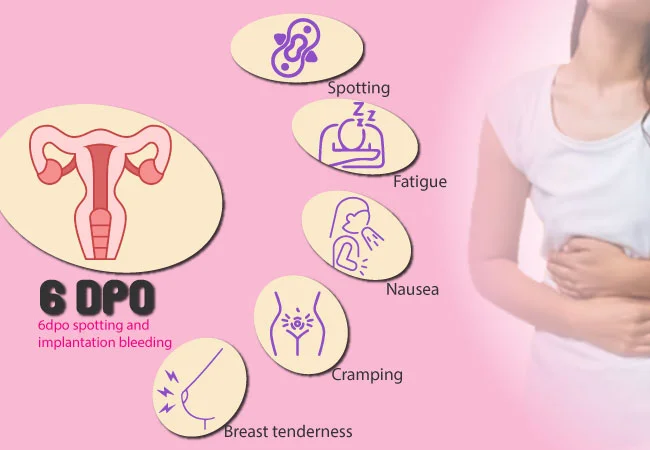6dpo spotting refers to spotting or light bleeding that occurs 6 days post ovulation (dpo).
Spotting during this time could potentially be implantation bleeding, which occurs when a fertilized egg implants itself into the lining of the uterus.
However, implantation bleeding typically occurs between 5dpo–12 dpo, with the majority of women experiencing it between 8-10 dpo.
It’s important to note that not all women experience implantation bleeding, and there can be other causes of bleeding or spotting during the menstrual cycle, such as hormonal fluctuations, cervical irritation, or infection.
Can you have implantation bleeding at 6dpo
Implantation bleeding may occur at any time during the ovulation. But it is a very rare case to see the implantation bleeding at the early stage of DPO like 5 DPO or 6 dpo
However if you are undergoing the twine pregnancy then likely you will see the implantation bleeding at early of the ovulation.
It’s just because and Twin mother carry two fatus at the time so she is having more HCG level. That being said, a twin mom faces more hormonal secretion.
Here is why, sporting at 6 DPO for twine pregnancy sounds more normal to twin pregnancy compared to any Singleton pregnancy
To know more about implantation bleeding timing, you may read, when does implantation bleeding occur?
Why do you experience spotting at 6 dpo?

- Hormonal fluctuations: Changes in hormone levels can cause spotting or light bleeding during the menstrual cycle. Spotting before your period could be caused by a drop in estrogen or a surge in progesterone.
- Ovulation: Some women experience spotting or light bleeding during ovulation, which typically occurs around 14 days before the start of the next period. However, if you have a shorter menstrual cycle, ovulation could occur closer to the time when you expect your period.
- Birth control: Plan B spotting is a common side effect of hormonal birth control methods, especially in the first few months of use.
- Stress: High levels of stress can affect hormone levels and disrupt the menstrual cycle, leading to irregular bleeding or spotting.
- Infection: Infections of the reproductive system, such as bacterial vaginosis or yeast infections, can cause spotting or abnormal discharge.
- Cervical irritation: Intercourse or a cervical exam can cause irritation or slight bleeding.
- Ovarian cysts: Cysts on the ovaries can cause bleeding or spotting

